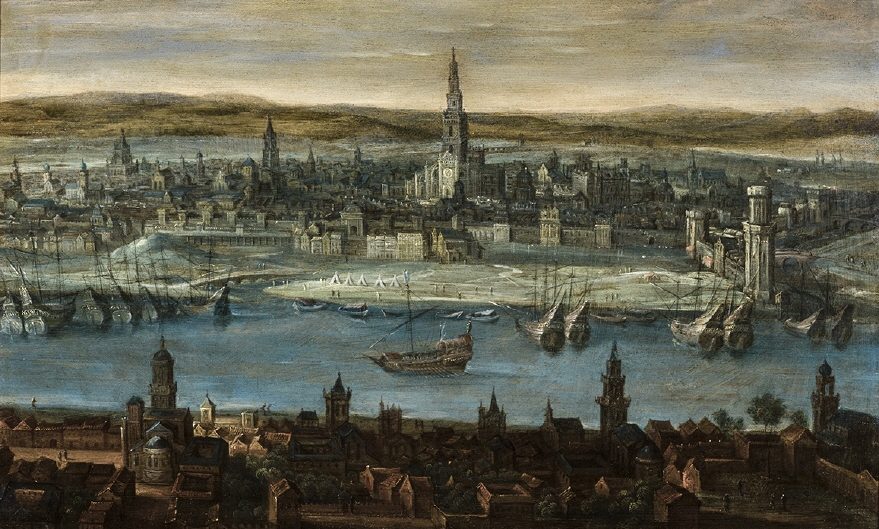Spain and the New World
Filipe Castro
Introduction
From 1492 to the first decades of the 19th century Spain ruled the Caribbean and most of Latin America unchallenged. Ships sailed to and from the American coasts, ensuring a regular contact with Asia and a vibrant commerce along the coasts of the South American continent.

The watercraft from this period is as varied as it is unknown. Most vessels were destroyed by treasure hunters and archaeologists have published only a small fraction of the shipwrecks found and surveyed, or sometimes even excavated.
This section is an inventory of the shipwrecks tentatively identified as Spanish and engaging in both the transatlantic trade with the New World and the local trade within the New World.
The Shipwrecks
At this stage of the project we have not yet attempted to separate the ships by routes and functions. Much of the information is missing and the present organization of the shipwrecks is a work in progress.
The objective of the nautical Archaeology Digital Library is to build a community of scholars and interested readers and contributors, and share as much reliable information online as possible. We encourage comments, corrections and contributions.
Central America and the Caribbean – Atlantic Voyages
Molasses Reef, c. 1520, Turks and Caicos
Highbourne Cay, c. 1520, Bahamas
Bahia Mujeres, c. 1525, Mexico
Francisco Padre, c. 1550, Cuba
Marex Mystery Wreck, c. 1600, Bahamas
Saona 1, c. 1550, Dominican Republic
Saona 2, c. 1550, Dominican Republic
Saona 3, c. 1550, Dominican Republic
Six Shilling Cays, c. 1550, Bahamas
Santa Maria de Yciar, 1554, Texas
Emanuel Point 1, 1559, Florida
Emanuel Point 2, 1559, Florida
Emanuel Point 3, 1559, Florida
San Juan, 1565, Canada
Spanish Wreck, c. 1575, Bermuda
St. John’s Bahamas, c. 1575, Bahamas
Western Ledge Reef, c. 1584, Bermuda
Francisco Padre, c. 1600, Cuba
Cerro Gordo 4, 1621, Puerto Rico
Santo António, 1621, Bermuda
N. S. Atocha, 1622, Florida
Santa Margarita, 1622, Florida
Shot Wreck, 1622, Florida
Urca la Viga, 1639, Florida
N. S. Concepcion, 1641, Dominican Republic
La Sabana, c. 1645, Venezuela
Delta 1, c. 1650, Spain
Stonewall, c. 1650, Bermuda
N. S. de las Maravillas, 1656, Bahamas
Mercante de Manzanillo, 1741, Colombia
Salmedina I, c. 1750, Colombia
Pacific Ocean
San Diego, 1600, Philippines
San Franscisco, 1608, Japan
Manila Galleons
San Juanillo, 1578, Mexico
San Agustin, 1591, California
N. S. de la Concepcion, 1638, Guam
Santo Cristo de Burgos, 1693, Oregon
